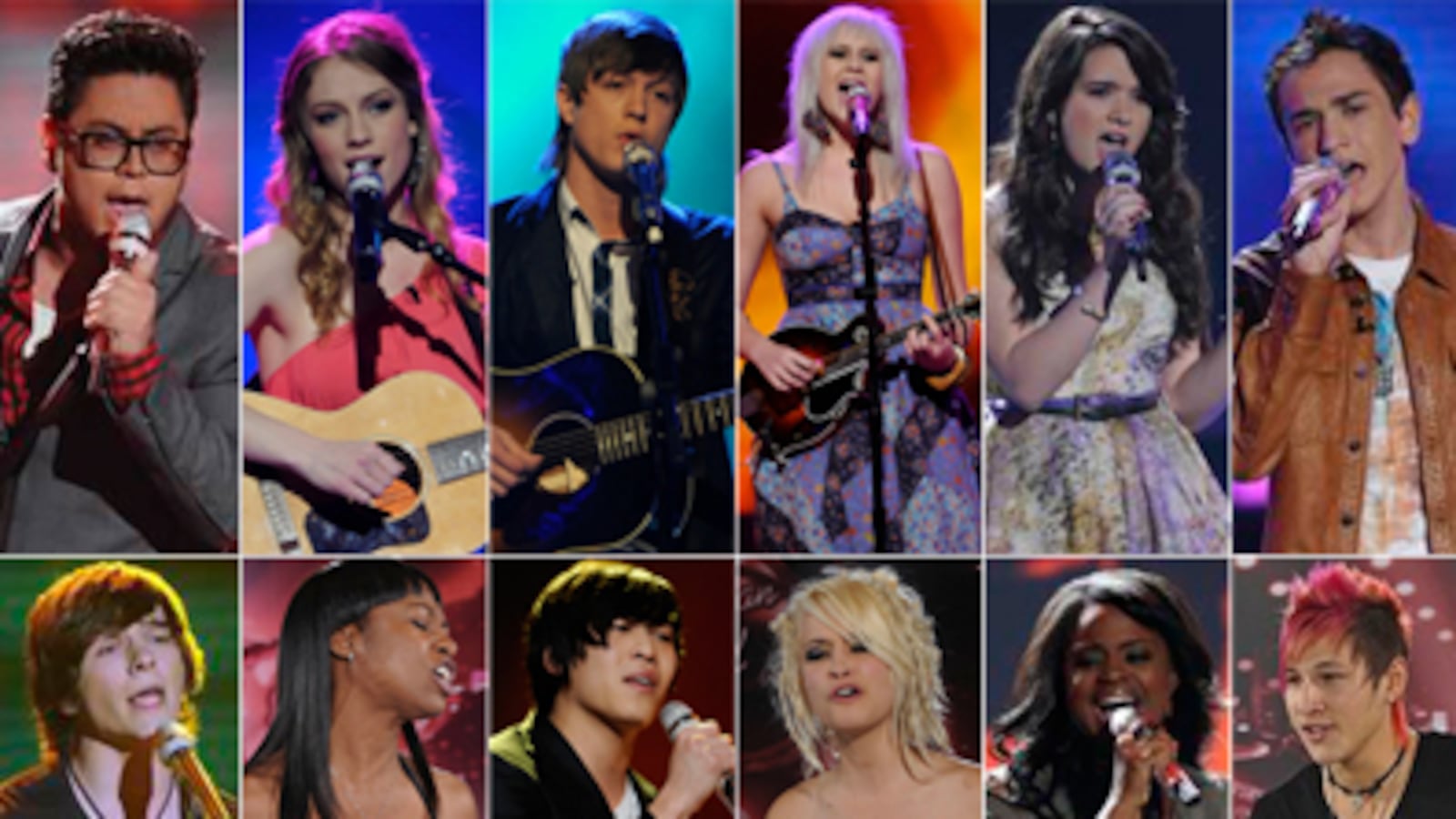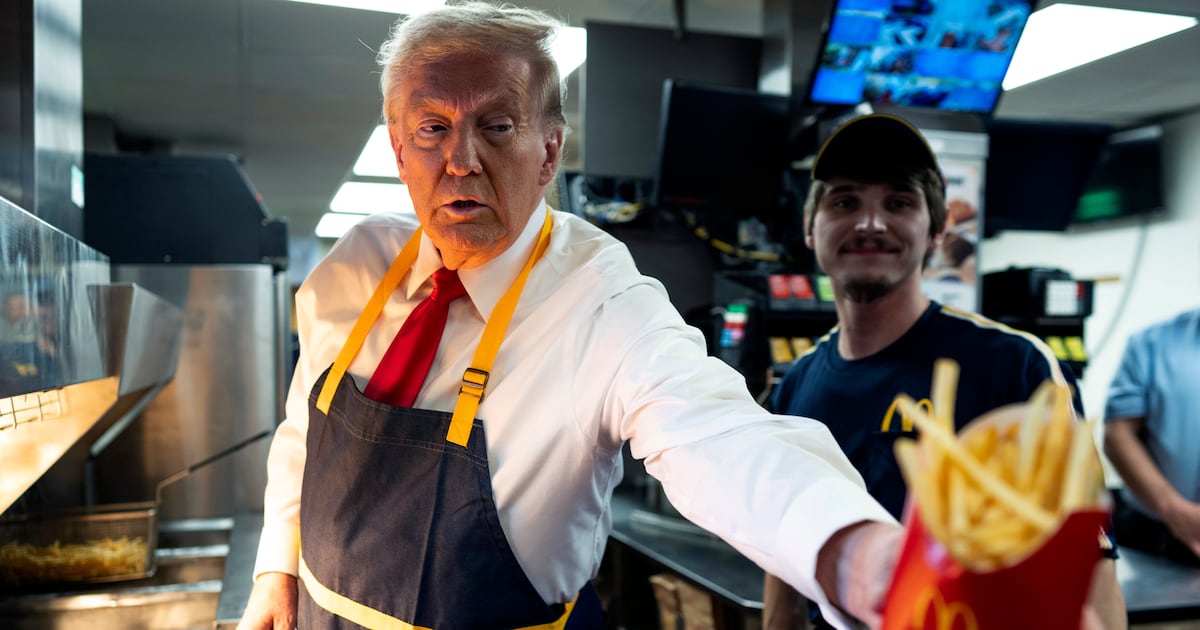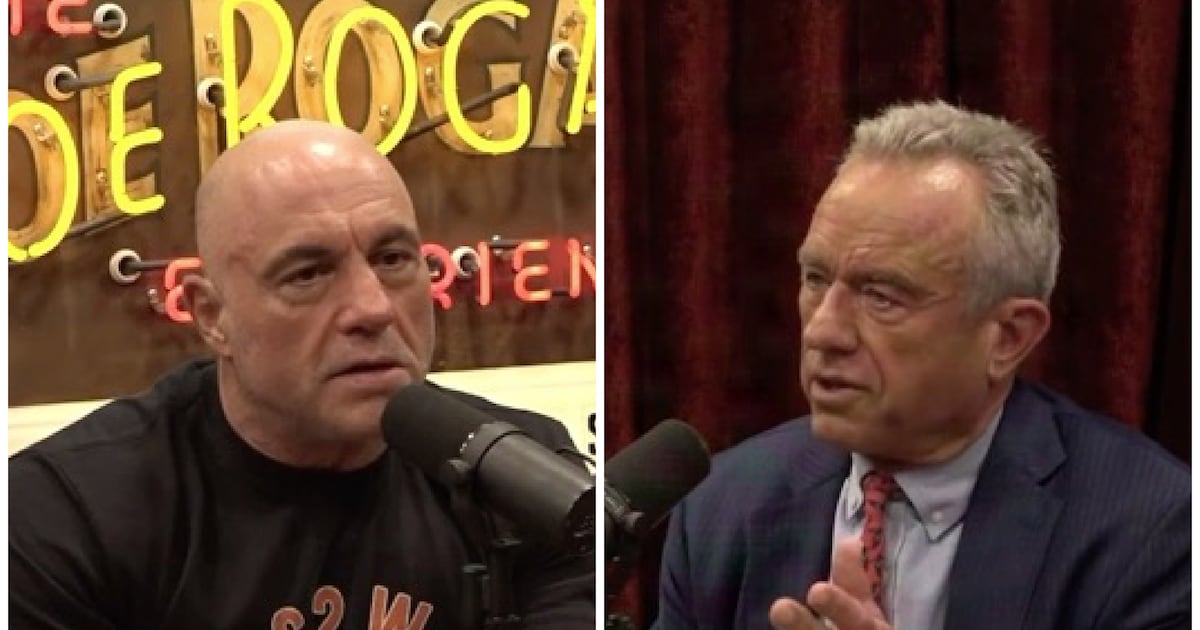It's common for fans of American Idol to complain bitterly about the show in the season's early stages. The slate of audition episodes gets more freak-dependent and interminable every year; the drama ginned up during the Hollywood Week episodes is more appropriate for Glee's high school setting; the "who will win?" narrative doesn't really kick in until most of the aspiring singers have been sent packing from the Coke-logo-festooned stage.
And this season has definitely been a transitional one for the show. The loopy Paula Abdul has left the judges' table and been replaced by the still-unsure-of-herself Ellen DeGeneres; the crabby British mogul Simon Cowell, he of the plunging V-necks and snide putdowns, has announced that he'll be leaving the show once its ninth winner is crowned; and the goal of the show itself has shifted, with a newfound emphasis on "artistry" seeming to supplant the show's former mission of finding big-voiced divas and pop diamonds in the rough.
Click the Image for Six Who Should Have Made the Top 12, and Six Who Should Not Have

But even with those problems, why has this season of Idol seemed so, well, bad? The show has now winnowed its contestant pool down to 10 hopefuls, and still most of the singers seem cowed by the cameras. (This season, the number of booted singers whose best vocal efforts came during their post-elimination swan songs is pretty high.)
• View our coverage of American Idol Season 9 Kara DioGuardi, who just arrived at the judges' table last year, has tried to turn every bit of camera time she gets into a one-woman re-enactment of Cougar Town, mentioning her childlessness and flirting with any male over the age of 25 who falls in her sights. Cowell seems alternately bored and hostile. And DeGeneres' internal strife over actually having to critique the contestants, instead of just lobbing bad metaphors at them in hopes that she'll evoke giggles from the crowd, shines through even more in HD.
There have been a few bright spots this season. Big-voiced single mother Crystal Bowersox has, week-in and week-out, seemed like she's operating not just on a different show but on a different plane, with compelling and professional performances of quality rock songs. A few weeks ago, the burly Michael Lynche toned down his hamminess during a transcendent performance of Kate Bush's "This Woman's Work" in which he absolutely nailed Bush's (and Maxwell's) soaring falsetto. And Siobhan Magnus, the quirky glassblower from Cape Cod, has turned into an absolutely ferocious performer on multiple occasions, although one worries if she's starting to rely too much on her ability to hit big high notes at climactic moments. (Surely this is in part inspired by the judges' favorable responses to over-the-top vocalizing.)
But those shining moments have been anomalies, and this week's episodes served as a microcosm of this season's problems. The songs were initially supposed to hew to the theme of "teen idols"–your boy bands, your tweenpop starlets, perhaps a Partridge Family song to reel in older viewers. But late last week, the theme was changed to the much broader "Billboard No. 1 Hits," and what followed was a parade of moldy oldies, many of which had been given the Idol treatment before. For a show that gives so much lip service to contestants being "current," it sure seemed odd that the bulk of the song selections were older than most of the contestants, never mind mentor Miley Cyrus; out of the 11 singers, only the 17-year-old Katie Stevens chose to sing a song that had been born in the 21st century. (That might have been the only good thing about her decision to sing Fergie's whiny ballad "Big Girls Don't Cry.") It's hard to read too much into song choice, thanks to the meddling of producers and the labrynthine process of clearing songs for performance–the bewitching Lilly Scott, after being eliminated two weeks ago, told reporters that she'd pushed to sing Radiohead's "Nude" but was rebuffed because producers thought it was "almost less well-known" than the Patsy Cline tune that sent her home—but the reheated songs just added to the night's dreariness.
Then there are the singers themselves. Sure, being a pop star isn't about hitting every note with unwavering precision; Cyrus proved that fact with her shaky performance of her new single Wednesday night, and the decision to Autotune some of the Top 11 during that same episode's group performance of Wham!'s "Wake Me Up Before You Go-Go" underscored it. But on balance, this bunch seems pretty lackluster, with only a few singers showing the potential for stardom—or even a decent vocal for the duration of a song—that recent winners Kris Allen and David Cook exhibited in their respective seasons' early stages. Paige Miles was sent home Wednesday night, and she had Tuesday's most unfortunate showing with an alternately histrionic and soporific version of Phil Collins' "Against All Odds." But other contestants faltered, too; Andrew Garcia's hokey performance of "I Heard It Through The Grapevine" was barely worthy of a callback for the California Raisins, while Aaron Kelly's exhumation of the bombastic Idol standby "I Don't Want To Miss A Thing" resulted in him transforming from a baby-faced boybander into a wizened old man for what seemed like the fifth time this season.
In darker moments, American Idol conspiracists point to some shenanigans on the part of Cowell. The judges' decisions during Hollywood Week, when those singers who passed muster during the show's cross-country tour were winnowed down to a 24-person semifinalist roster, only grew more eyebrow-raising as the weeks went on. Take the chirpy 16-year-old Haeley Vaughn, who probably made the judges see dollar signs when she burbled about loving country music before her audition. When she was eliminated on March 4, DioGuardi proclaimed that she needed a year or so to let her voice "mature." If she needed extra time, why rush her into the spotlight now? Why not give Angela Martin, a three-time Idol auditioner who didn't make the Top 24 despite her ability to belt –and who will be too old to try out for the show next year—a chance to shine?
Perhaps Cowell is trying to give the show another reason for him to leave. Or could it be that he, too, is wondering just what place Idol holds in the pop landscape? It's still an undeniable powerhouse on television, but sales of its contestants' post-show albums have dropped off. For Your Entertainment, the debut album from last year's glammed-out runner-up Adam Lambert, has sold 569,000 copies to date, according to Nielsen SoundScan; the self-titled effort from season eight's more subdued winner Kris Allen has sold 286,000. In contrast, the March 16 performance episode was watched by 10.6 million viewers from 18-49, according to Nielsen estimates.
One can chalk the sales declines up to a changing pop world where recorded music that one can pay for is an oddly scarce resource. Perhaps that's part of the reason why Cowell seems to long for the grunged-up versions of pop songs that were turned in by Cook two years ago, and why he's taking every opportunity to touting the dreadlocked Bowersox as the front-runner; strong, "authentic" singers are at least a reason for people to plunk down money for the Idol concert tour, even if Bowersox's busker vibe doesn't always result in transformative covers.
Next week, the show will tackle R&B, with Usher in the house to help guide the contestants through their song choices. The list of songs the contestants can choose from is up at the iTunes Store now, and it seems to be full of potential minefields—Mariah Carey, Whitney Houston, Michael Jackson. Here's hoping that Usher will at least steer the contestants toward the songs that can be considered "current," or at least make them a little bit less scared of the cameras.
Maura Johnston is the American Idol columnist for Fancast.com and the pop critic for NPR's Weekend All Things Considered. She has written for the Village Voice, Vanity Fair, Paste, and Gawker. Follow her on Twitter.






